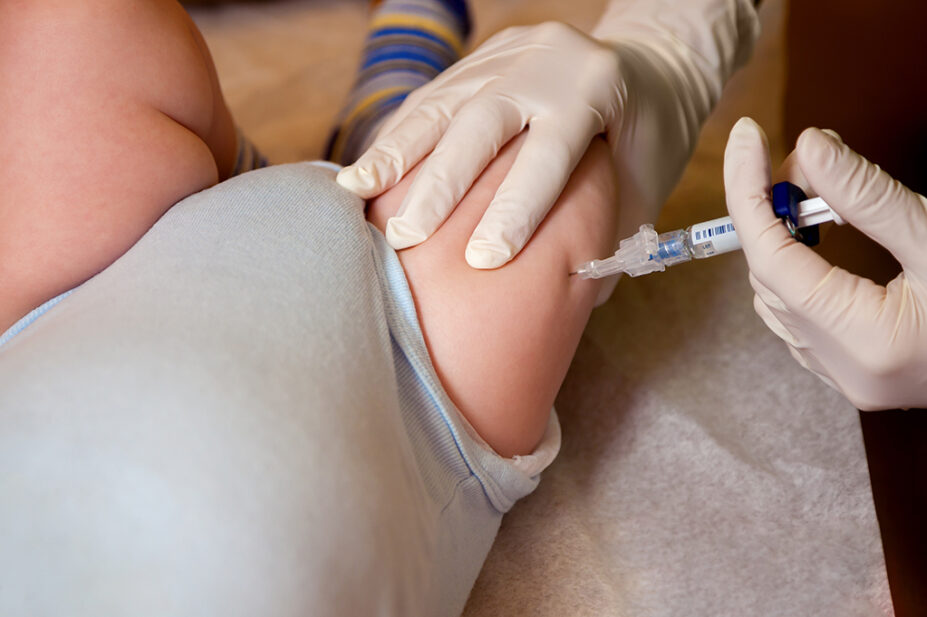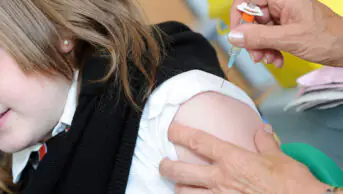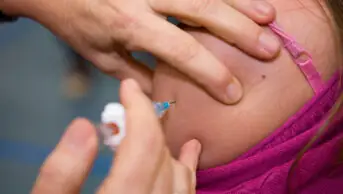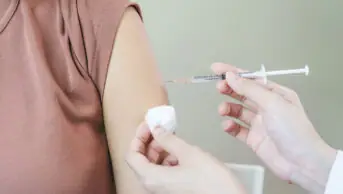
Shutterstock.com
The proportion of children who have received both doses of the measles, mumps and rubella (MMR) vaccine by the age of five years has fallen for a fifth consecutive year, NHS data show.
‘Childhood vaccination coverage statistics’ for 2023/2024, published by NHS Digital on 17 September 2024, show that 83.9% of children in England had completed the two-dose course by the age of five years, when the course is generally completed. There were 670,500 children aged five years in England at the time the data was recorded.
This percentage has been declining since 2019/2020, when 86.8% of children completed the course by their fifth birthday. The NHS Digital data show that there were 689,600 children aged five years in England at this time.
In January 2024, NHS England launched an MMR catch-up campaign in response to an outbreak of measles cases and a fall in MMR vaccination rates to a 13-year low, with GP practices contacting parents of children aged 6–11 years to book appointments for any missed doses of the vaccine.
The latest NHS Digital data showed a high level of regional variation in vaccination coverage, with the highest vaccination levels seen in the North East of England, where 89.7% of children received both doses by their fifth birthday, while London had the lowest level at 73.3%.
The proportion of children receiving their first does of the vaccine by the age of five years was higher, at 91.9%; however, this has also continuously declined since 2019/2020, when it was 94.5%.
Data published by Public Health Scotland in June 2024 for 2023/2024 showed that 89.2% of children had both doses of the MMR vaccine by the age of five years. This figure was 90.5% for the 2022 calendar year.
Public Health Wales data for 2023/2024 showed that 88.9% of children in Wales received both MMR doses by the age of five years. In 2019/2020, the uptake was 92.1%.
Vanessa Saliba, consultant epidemiologist at the UK Heath Security Agency (UKHSA), commented: “Our drive to increase vaccine uptake must continue so that no child is left at risk of serious illness or life-long complications.
“These vaccines offer the best protection as children start their journey into nursery and mixing more widely. Many who missed out on their vaccinations have already been caught up, but more needs to be done to ensure all those eligible are vaccinated.”
Tase Oputu, chair of the Royal Pharmaceutical Society (RPS) English Pharmacy Board, said: “Pharmacists play a crucial role in supporting public health and prevention, and as trusted healthcare professionals can provide valuable advice to parents and caregivers, helping to overcome vaccine hesitancy and boost MMR vaccine uptake.
“The success of flu and COVID-19 vaccination programmes through community pharmacies demonstrates the potential for pharmacists to contribute more broadly to vaccination uptake. With the right support and funding, pharmacies could expand their services to include MMR vaccinations, making it easier for families to access protection for their child, improving overall vaccination coverage and preventing future outbreaks.”
A community pharmacy scheme in the North West of England, aimed at offering catch-up MMR vaccinations to children who missed the doses before the age of five years, has now been extended from 28 pharmacies to 43 pharmacies and will run until the end of March 2025.
The latest iteration of the scheme, which launched on 18 June 2024, will offer the MMR vaccine to all eligible young people aged 6–25 years.
Steve Russell, national director for vaccinations and screening at NHS England, said: “Too many children are still not fully vaccinated against diseases like measles and whooping cough, which can cause serious illness and are preventable.
“Vaccinations have been protecting children for decades and are offered free as part of the NHS routine immunisation programme, saving thousands of lives and preventing tens of thousands of hospital admissions every year.”


